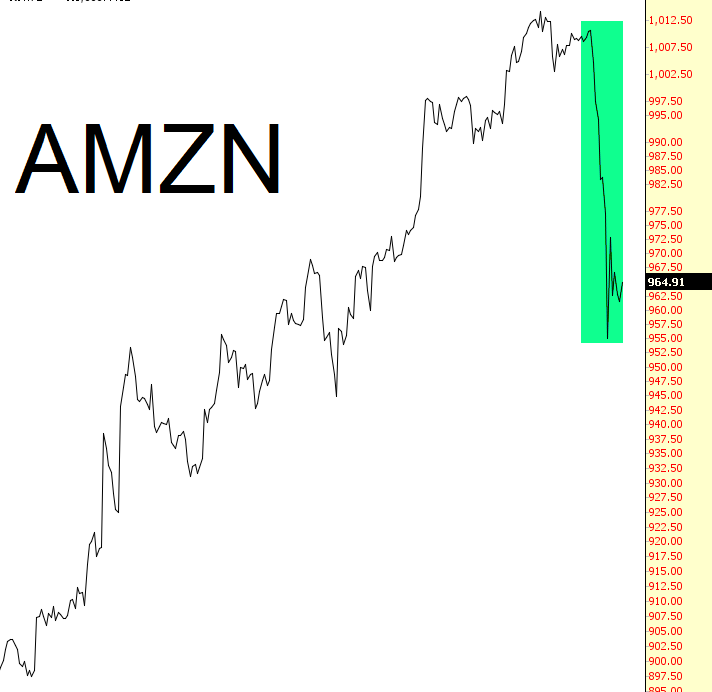As you well know, Friday was a bad day for tech stocks. All it took was a single memorandum from Goldman Sachs about a “valuation air-pocket” (whatever THAT means) to slam literally hundreds of billions of dollars of assets into non-existence. Amazon is a good example of how swiftly this “air pocket” got deflated…

But what does that mean, really? I woke up this morning with an interesting metaphor that I think helps explain it.
I was prompted to think about this metaphor after I read something last night about how, once a stock has reached a certain ridiculous level, it sort of doesn’t matter how much more ridiculous it gets, because all sensible rules of valuation are out of the window. If Amazon is at trading with a P/E of 180, there’s no reason it shouldn’t be at a P/E of 250, 120, 500, or 5000. It’s all just dumb and a matter of fiscal musical chairs. Whereas when a stock like Tesla was trading at, say, $37/share, such as when I first started writing about the company in very positive terms, it’s easier to make a case to purchase.
So the rather macabre way I think of it is a person jumping out of a window. If you jump out of a first floor window, the result is meaningless. You stroll away. Deciding instead to jump out of the second floor, fifth, or tenth all are really different decisions with different outcomes. It’s the different between easily walking away, twisting your ankle, breaking your leg, or dying.
It’s similar, I think, when looking at stocks with sensible valuations. Buying Bank of America at $4 a share, like it was just a few years ago, is sort of a “jump from the second floor” kind of decision.
These days, however, no one is on the lower levels anymore. There comes a point where, frankly, it doesn’t matter if you are on the 50th floor, the 100th floor, or the 500th floor – – you get “splat” every time, and there’s no reason that Amazon, which crossed $1,000/share last week, shouldn’t reach $7000/share or perhaps may never see $1000/share again in human history.







